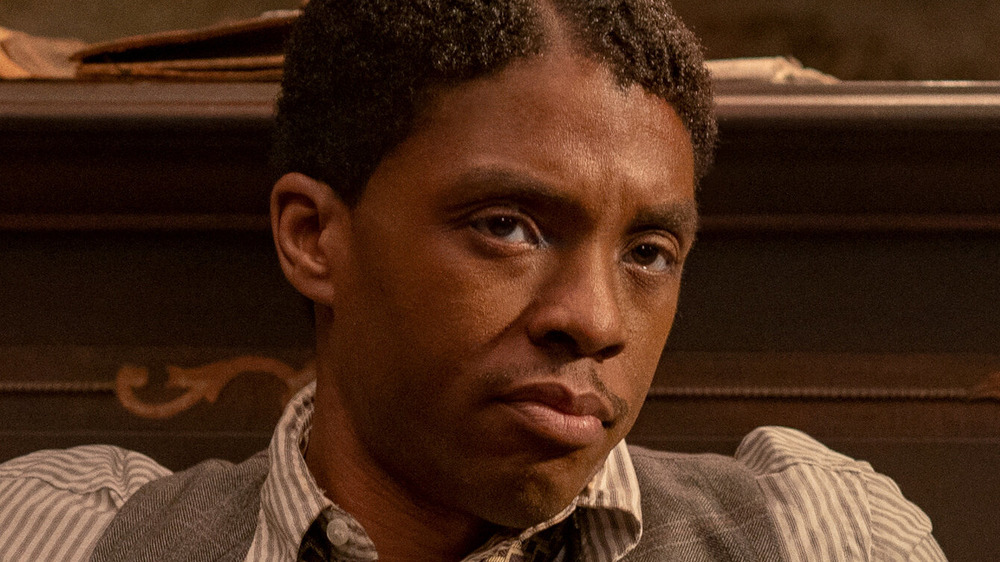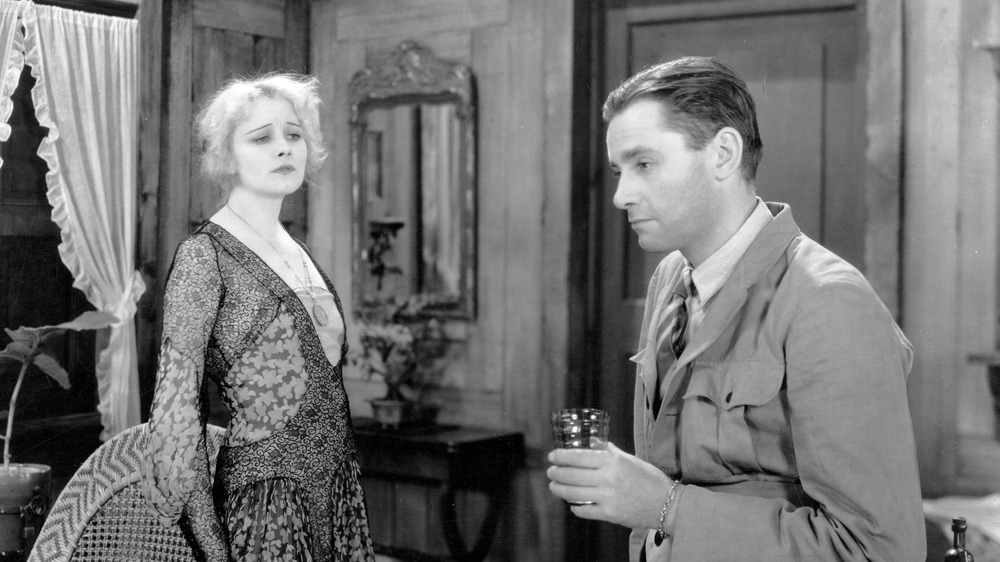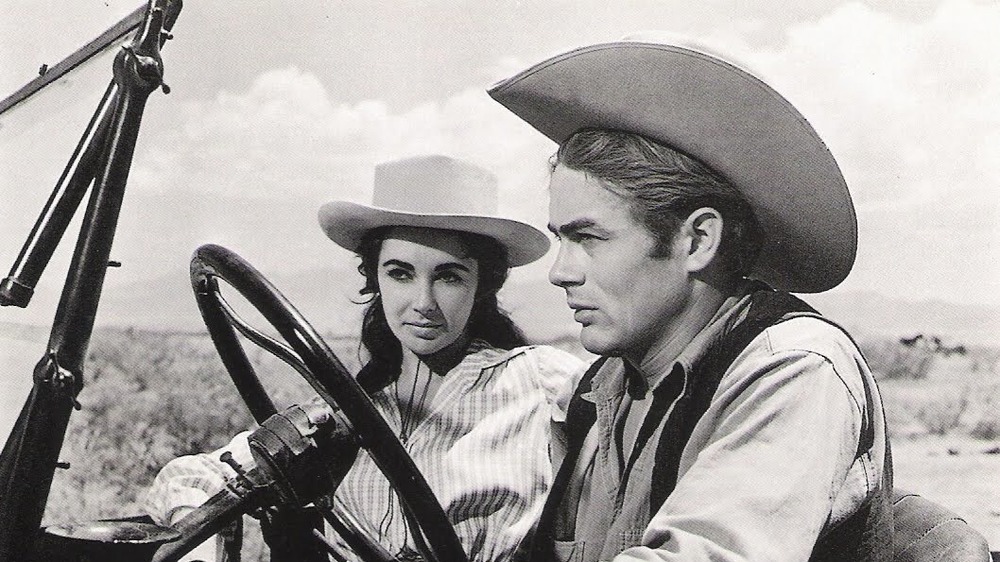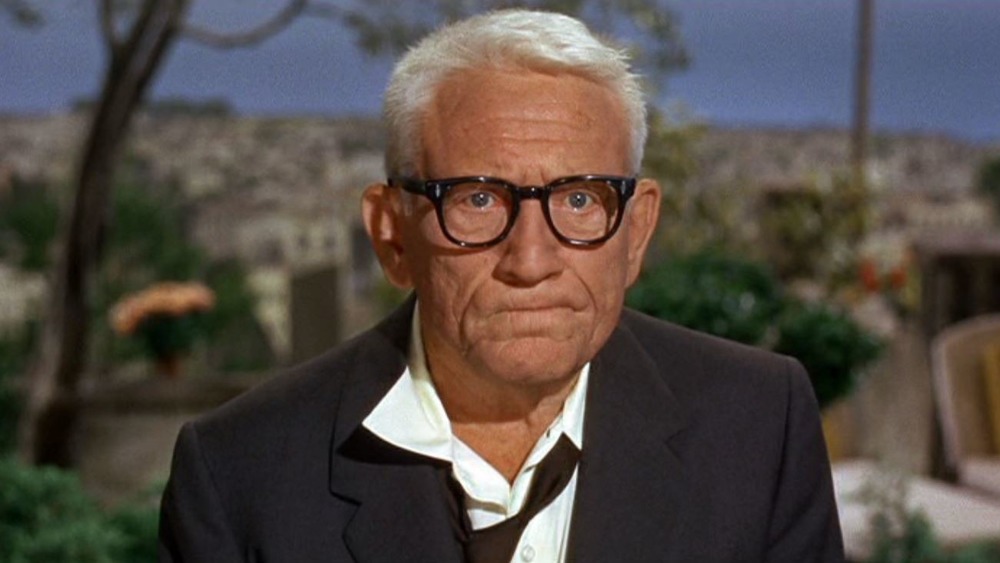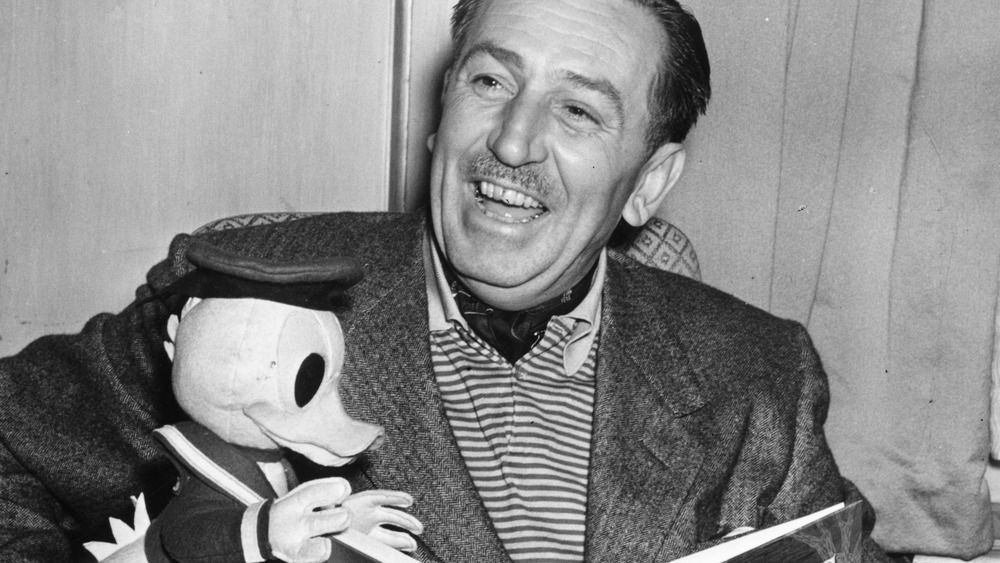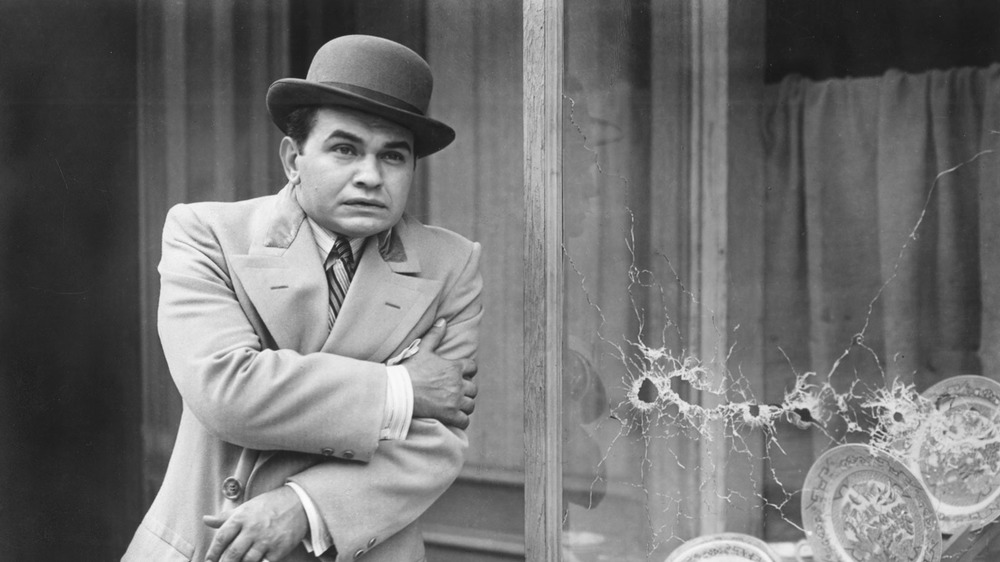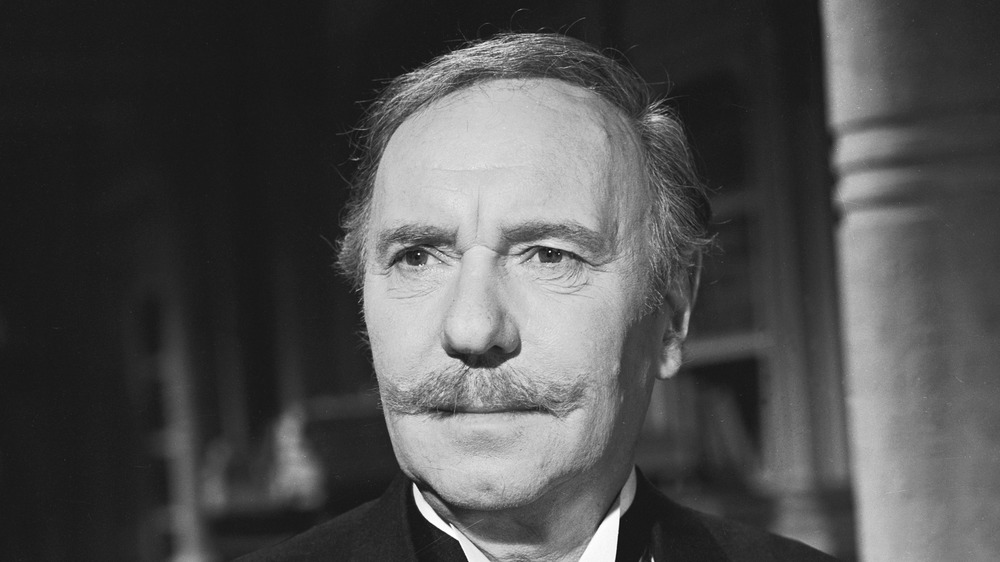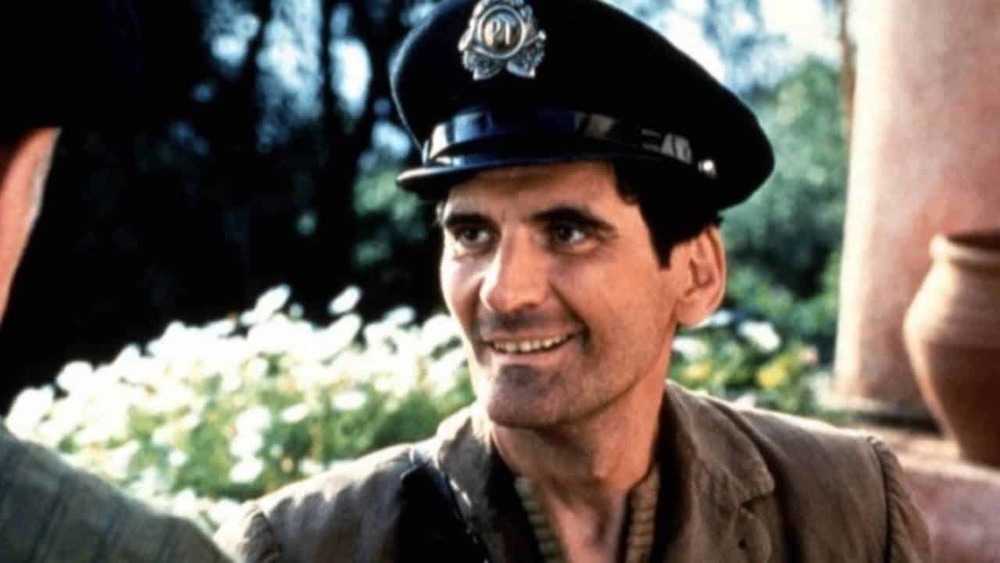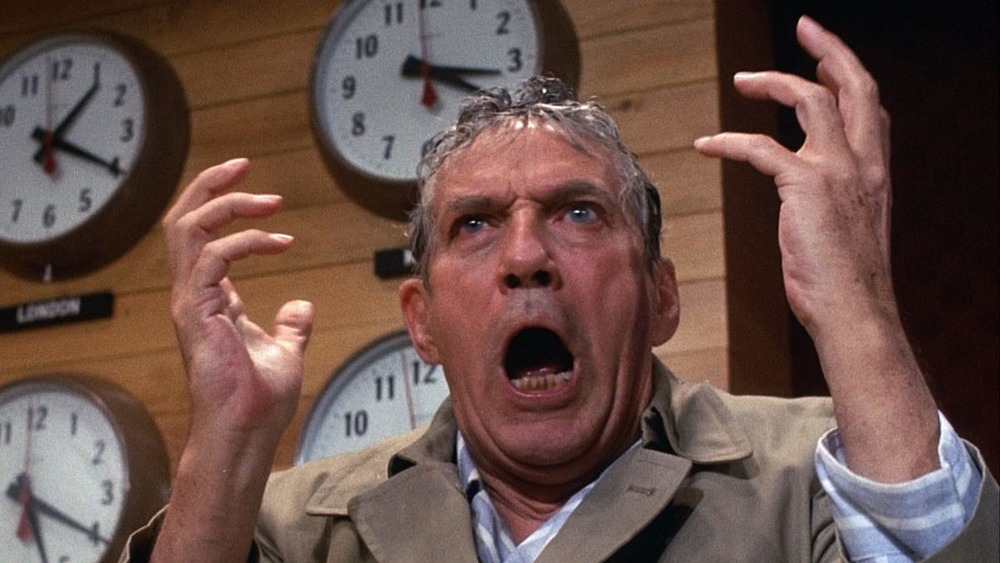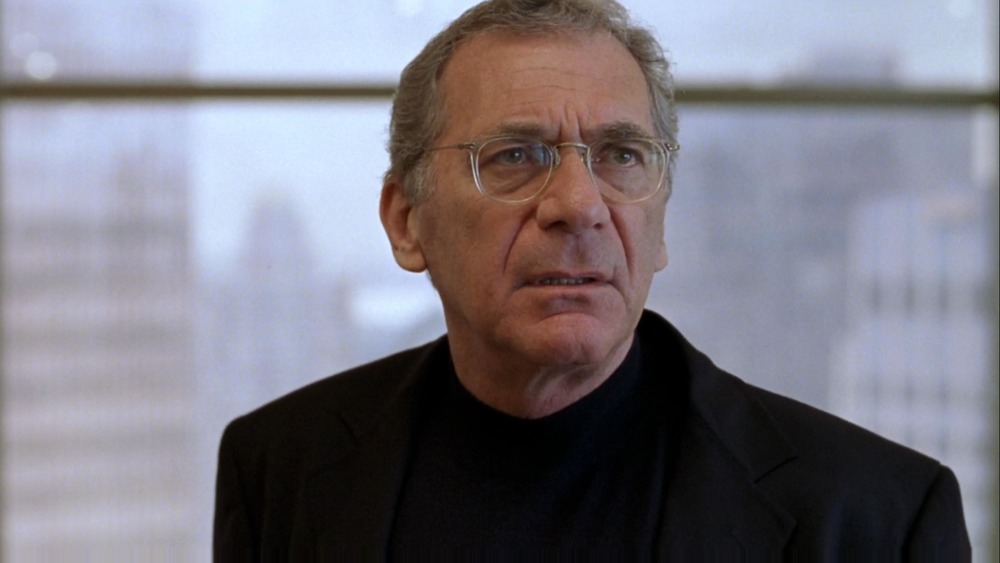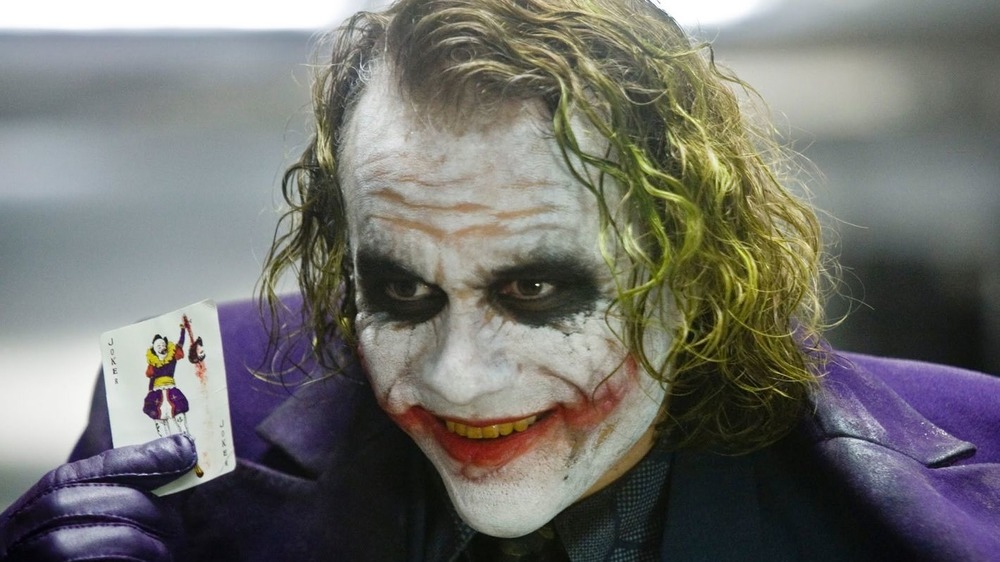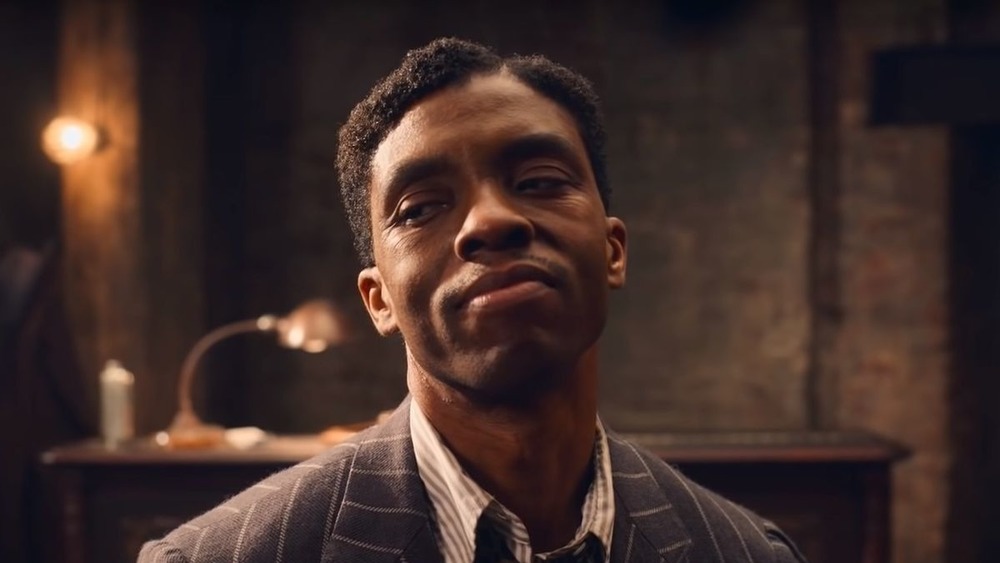Actors Who Were Nominated For An Oscar After They Died
It doesn't happen every year, but the Academy Awards have frequently had to grapple with the fact that some nominees don't live to see their works recognized at the ceremony. Dating back to the second Academy Awards, tragic circumstances have taken more than one performer before they had a chance to have their achievements applauded in front of tens of millions of viewers worldwide. It's a grim reality that casts a shadow over the show — no matter what else you might see during the Oscars, you can't help but remember an honoree who couldn't be there.
The actors who've received posthumous Oscar nominations — and wins — is relatively short, but they're all artists whose work would have been beloved even without being informed by tragic real-world circumstances. For all of the actors on this list, the Academy Awards as well as the viewers at home got a chance to appreciate these artists one final time. They may be gone, but a posthumous presence at the Oscars is just one of the many ways these actors will never fade from memory.
Jeanne Eagles: Best Actress for The Letter
Just two years into the existence of the Academy Awards as an institution, the ceremony had to deal with the tragic circumstances of an artist being nominated after they passed away. The actor in question was Jeanne Eagels, an early movie star who had dabbled in all kinds of acting, from stage performances to vaudeville acts. She made a foray into sound cinema with her performance as Leslie Crosbie in The Letter, which scored her a nomination for Best Actress. It was an achievement that served as a testament to Eagels' dedication to the craft of acting.
It was also a momentous occasion she wouldn't live to see, as Eagels suddenly passed away at the age of 39 due to complications related to overdosing on drugs. Her death came in October 1929, six months after The Letter first hit theaters but nearly seven months prior to the second Academy Award ceremony. Once the event rolled around, Eagels ended up losing the award to a Mary Pickford performance in the film Coquette, but her very presence in this category established a precedent for deceased actors to be recognized at the Oscars that continues to this day.
James Dean: Best Actor for East of Eden and Giant
The loss of James Dean didn't just mean the passing of an actor. It meant the world had lost an icon who, through just a handful of roles, managed to embody youthful autonomy at a time when it was burgeoning in American culture. The 1950s were an era in which the teenager was finally recognized as a member of society with a voice, and Dean's work as an actor helped to shout that voice from the rooftops. His tragic death at the age of 24 in September 1955 left a gigantic hole in pop culture, and one of the many ways his legacy lived on was through recognition at the next two Academy Awards ceremonies.
At the 28th Academy Awards, Dean scored his first Oscar nomination in the Best Actor category for his work in East of Eden. It would not be the last time Dean earned Academy Award recognition: 14 months after his passing, the western Giant debuted in theaters to critical acclaim. It went on to score 10 nominations at the 29th Academy Awards, including two Best Actor nods, one for Rock Hudson and the other for Dean. To this day, Dean's accomplishment remains the only instance of an artist scoring multiple Oscar nominations after their death.
Spencer Tracy: Best Supporting Actor for Guess Whose Coming to Dinner
Spencer Tracy spent decades delivering memorable performances, comedic as well as dramatic, in films ranging from Captain Courageous to Inherit the Wind. In the process, Tracy garnered high levels of acclaim from film critics as well as the general public. So beloved were Tracy's performances that he ended up being nominated for acting Oscars nine times, making him one of a small handful of actors to garner nine or more Oscar nominations. His presence at the Academy Awards was so persistent that it continued on even after his death.
That tragic event occurred in June 1967 after he experienced a fatal heart attack, immediately leaving a gigantic hole in the fabric of American cinema in the process. Six months after his death, Tracy's final performance as Matt Drayton in Guess Who's Coming to Dinner arrived in theaters. It was a movie that sparked conversations of all kinds, including awards season chatter for Tracy. That kind of buzz ended up leading Tracy to secure a posthumous Oscar nomination for Best Actor at the 40th Academy Awards. Though Rod Steiger won that year for In the Heat of the Night, it was still fitting that Tracy would manage to secure one final Oscar nomination even after he had passed away.
Walt Disney: Best Animated Short Film for Winnie the Pooh and the Blustery Day
You might not think of Walt Disney as an actor. After all, he was better known as so many other things — an entrepreneur, an animator, the host of a famous television show. But because he voiced the character of Mickey Mouse for decades, Disney was actually quite familiar with the world of acting. Like any number of actors, Walt never received much love from the Academy Awards in his lifetime, mostly because animated films rarely received much in the way of Oscar notice.
That managed to change with the 41st Academy Awards, a ceremony in which Walt Disney was nominated for Best Animated Short for the feature Winnie the Pooh and the Blustery Day. This came shortly after Disney's passing in 1967 at the age of 65. Not only did Walt Disney secure a posthumous Oscar nomination, but he also ended up winning in the category. This tremendous feat brought Disney's career full-circle. The man who kicked off his Hollywood career with animated short films won his first and final Oscar for forays in the very same medium. It also meant that, among his many other accomplishments as an artist, former voice actor Walt Disney also managed to score a rare posthumous Oscar win.
Edward G. Robinson: Honorary Award
Throughout his career, Edward G. Robinson proved a most memorable figure, especially when it came to gangster films. If you needed a performer who could convincingly portray a morally complicated character, Robinson was your guy. Despite a large body of work that included such all-time classics as Double Indemnity, Robinson was never even nominated for, let alone won, an Oscar in his lifetime.
That all changed two months after he passed away after a battle with bladder cancer at age of 79. It was a somber occasion that called for some sort of recognition by Hollywood at large. Such recognition happened at the 45th Academy Awards, which saw the deceased Robinson bestowed with a special Academy Honorary Award. His widow, Jane Robinson, accepted the award and read off a speech penned by her late husband. "I am very grateful to my rich, warm, creative, talented, intimate colleagues who have been my life's associates," she read. "How much richer can you be?" Indeed, it was an award that showed Robinson was as rich with friends as the world of cinema was rich with unforgettable work from Robinson. It took a lifetime for Robinson to garner Academy Award recognition, but his words made his eventual victory as memorable as his best performances.
Ralph Richardson: Best Supporting Actor for Greystoke, The Legend of Tarzan, Lord of the Apes
Greystoke: The Legend of Tarzan is not a particularly well-remembered motion picture. It received generally positive marks from critics but failed to make much of a profit in theatrical release and has since largely faded from the public consciousness as newer film adaptations of Tarzan have emerged. But Greystoke is noteworthy in at least one way: It gave veteran actor Ralph Richardson his second and final Oscar nomination for Best Supporting Actor.
Richardson, a beloved British performer whose long list of achievements included scoring Oscar attention in the 1950s, played Tarzan's grandfather in Greystoke, and was nominated in a category that also included actors such as Pat Morita (for The Karate Kid) and John Malkovich (for Places in the Heart). Richardson eventually lost to Haing S. Nigor in The Killing Fields, but he still earned one last bit of awards attention in his career, lending Greystoke: The Legend of Tarzan arguably its most lasting contribution to pop culture in the process.
Massimo Troisi: Best Actor for Il Postino
In his lifetime, Massimo Troisi was known as an artistic jack of all trades — a director, a writer, and actor whose filmography included movies such as Ricomincio da tre. He made his worldwide breakthrough in the 1990s, but Troisi's versatility as an artist meant that his Italian film industry legacy was established long before. That impressive career came to a sudden halt when he died of a heart attack in 1994, shortly before the release of his final film, Il Postino: The Postman. The film would go on to give Troisi a renewed level of fame on the worldwide pop culture stage, also proving a smashing success when awards season rolled around — it received five Academy Award nominations at the 68th Academy Awards, including two for Toisi (one for Best Actor and the other for Best Screenplay).
Il Postino's tremendous awards season acclaim reinforced how widely beloved this Italian drama had become during its theatrical run. Troisi was unable to witness any of it before he died, but his multiple posthumous Oscar nominations were another testament to his many gifts as an artist.
Peter Finch: Best Actor for Network
"I'm mad as hell and I'm not gonna take it anymore!" With that line alone, Peter Finch's Howard Beale from Network cemented himself as an unforgettable part of cinema history. A veteran news anchorman who snaps and starts to rant and rave on the airwaves about the problems of the world, it's a character that Finch brought to life with convincing urgency. You believe that this really is a man who found no other outlet for his despair than going on television and shouting about it.
Powerful, socially relevant, and delivered by a beloved actor, Finch's performance in Network checked off all the boxes. Under any circumstance, it would have been a shock if Finch didn't get a Best Actor nod for his work, but there was extra significance for the recognition as Finch passed away prior to the 49th Academy Awards. His subsequent win made Finch the first actor in history to win an acting Oscar posthumously. It's just the kind of momentous achievement you'd associate with a performance as seminal as the one Peter Finch gave us in Network.
Sydney Pollack: Best Picture for The Reader
Filmmaker Sydney Pollack scored wins for Best Director and Best Picture at the 58th Academy Awards thanks to his feature Out of Africa. Though none of his subsequent directorial efforts scored Best Picture nods, he continued to have a notable presence in the world of film as the director of a number of box office hits — and he was also seen onscreen via supporting roles in movies like Changing Lanes and Michael Clayton. Another one of his late creative pursuits was serving as a producer on a pair of films that made it into the prestigious Best Picture category in the late 2000s — including The Reader, which was released just months after Pollack passed away from complications related to cancer in May 2008.
Dying at the age of 73, Pollack left behind a large body of work that would go on after his passing in many ways. This included awards season success, with The Reader going on to score five Oscar nominations at the 81st Academy Awards — including Best Picture, for which Pollack was nominated alongside a trio of other producers. In his lifetime, Pollack was a regular presence at the Oscars, scoring six nominations over the course of nearly 40 years. It was only fitting that his final credit as producer would garner him his final Oscar nomination.
Heath Ledger: Best Supporting Actor for The Dark Knight
Over the years, there have been many actors who have portrayed the Joker in feature-length films. Many of them have been well-received, but since 2008's The Dark Knight, all other portrayals of the character will always have to contend with Heath Ledger's interpretation. Ledger's work as the villain was a truly remarkable feat, at once a radically realistic vision of the Clown Prince of Crime and also something that tapped into the cartoonishly chaotic qualities that have always defined the character. Balancing the old with the new made Ledger's take on the character truly unforgettable.
Ledger's Joker in The Dark Knight was always destined to be beloved. However, a tragic new layer of importance was attached to the performance after his unexpected death at the age of 28 in January 2008. His passing stunned the world and turned an unforgettable villain into a swan song from one of cinema's most daring young actors — leaving such an impression that he became only the second actor in history to score a posthumous acting Oscar win. That Academy Award victory is just one of the many ways Ledger's Joker will always stand out.
Chadwick Boseman: Best Actor for Ma Rainey's Black Bottom
The unexpected passing of famous actors can frequently be difficult to truly accept. For the general public, actors exist in movie theaters and our televisions. They're always there, stuck in the state they filmed those performances in. It can compound the difficulty of grappling with the thought that these performers are no longer with us — and so it is with Chadwick Boseman, who portrayed a number of legendary figures that embodied perseverance and courage in his years as an actor. There's vivid life to Boseman's performances, including his turn as Levee Green in Ma Rainey's Black Bottom.
A magnetic performance, it's a microcosm of the kind of depth Boseman brought to his characters seemingly effortlessly. It also turned out to be his final live-action performance after his sudden death in August 2020. Boseman's work here garnered the actor his first Oscar nomination for Best Actor. Fans, peers, and loved ones continue to lament having to say goodbye to Chadwick Boseman, but high-profile recognition like his posthumous Oscar nomination serves as a reminder that an actor of his stature is never truly gone.
